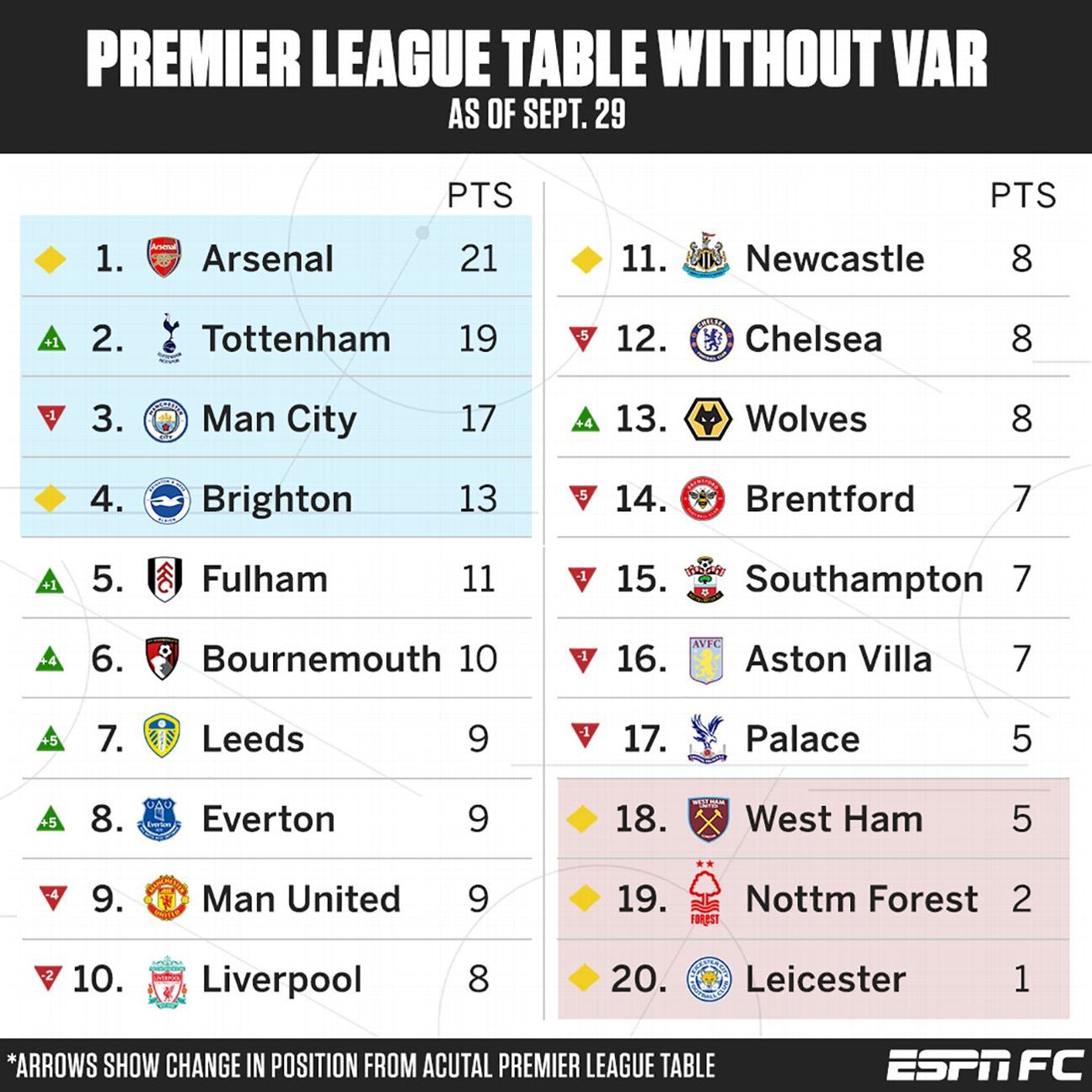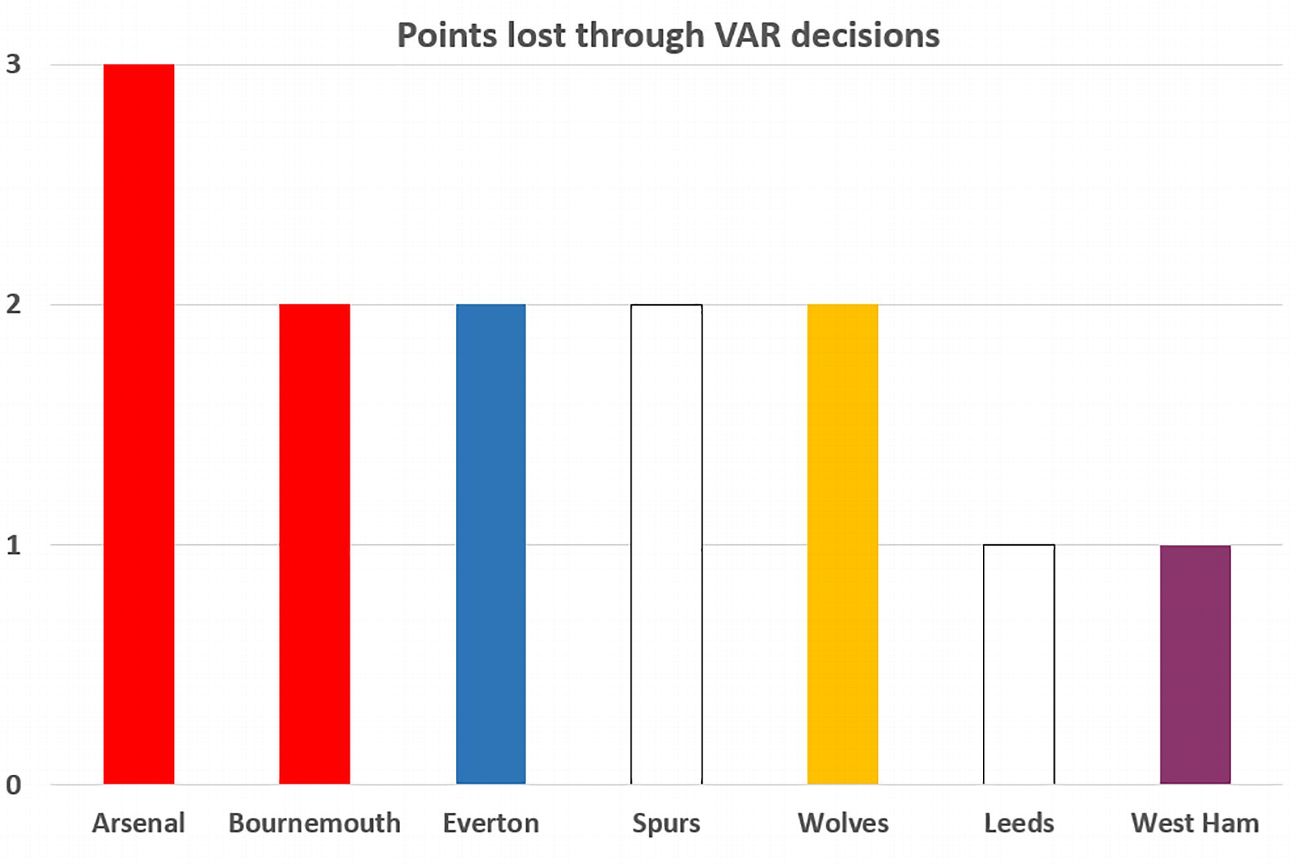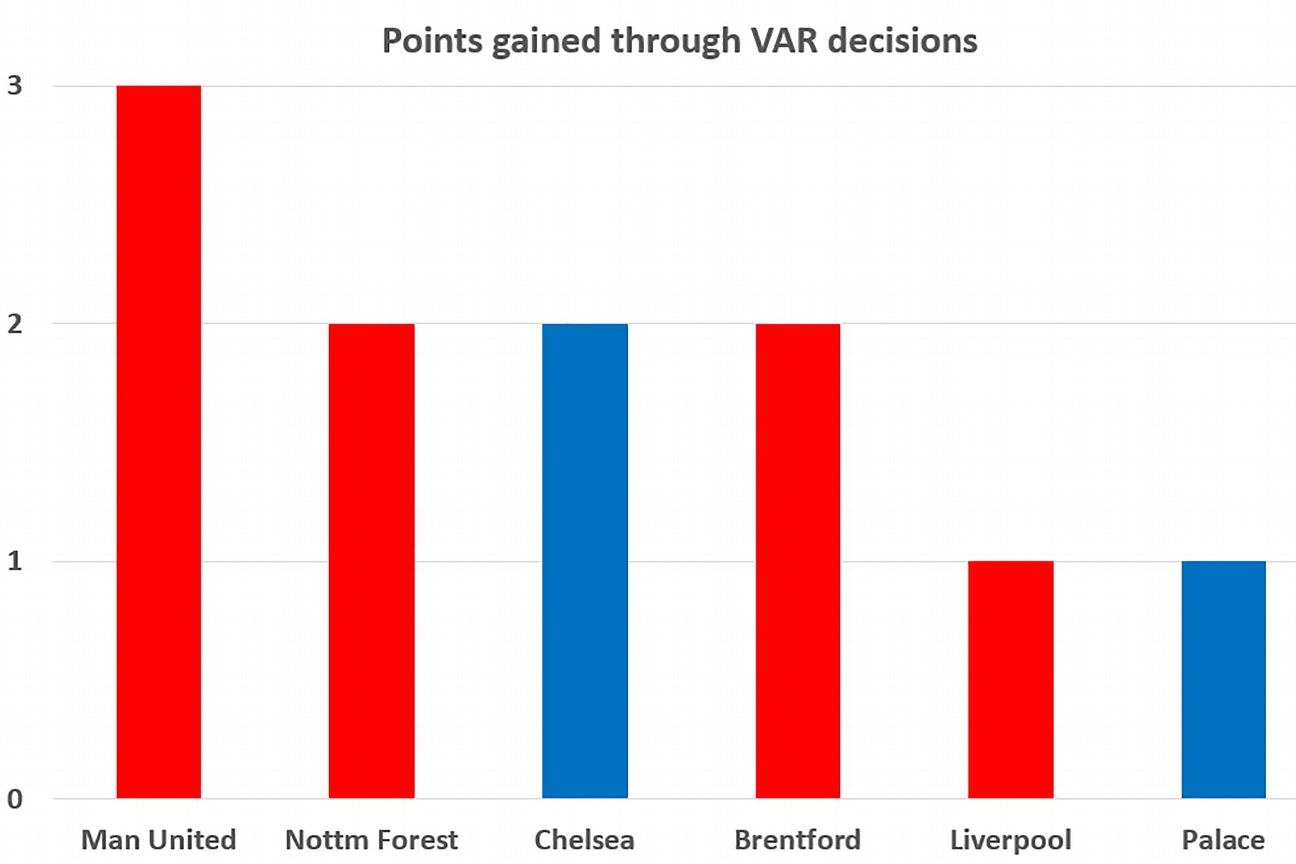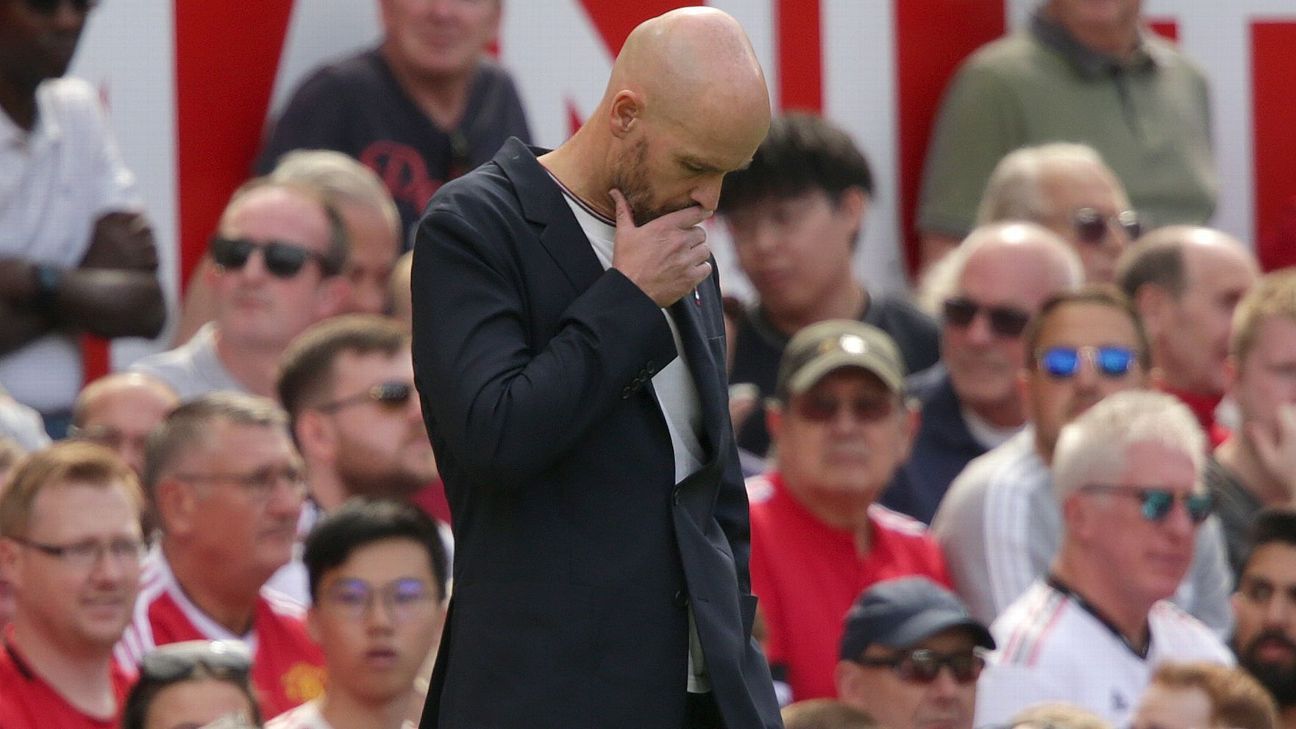The 2022-23 Premier League season is just 67 games old, yet already we’re seeing the effect of VAR decisions. Arsenal fans will once again be bemoaning the video referee, while some of the other biggest clubs will be glad it’s around.
– Stream on ESPN+: LaLiga, Bundesliga, MLS, more (U.S.)
Last season, our VAR Effect Table showed that the Gunners would have qualified for the Champions League in place of arch-rivals Tottenham Hotspur if it hadn’t been for VAR. So far this season, Arsenal have lost only one game — but the VAR had a huge say in that, and without it, they’d have a 100% record.
It’s a different story for Chelsea, Liverpool and Manchester United — as they slump down the table without VAR decisions in their favour.
Like we did last year, we’re looking at all VAR decisions across the Premier League, and seeing how they might have affected the outcome of games.
It’s not just about the number of times a team gets a favourable VAR call or about how many goals are affected. What’s more important is when these VAR decisions take place, how they might have changed the course of the game and, crucially, whether that impact would ultimately have changed the final score.
ESPN brings you the VAR Effect Table. We’ve taken all 94 VAR decisions in the Premier League so far this season and calculated how they might have changed the outcome of matches. We’ll continue to track VAR throughout the season and find out who the true winners and losers are.
– JUMP TO: The winners without VAR | The losers without VAR
How we work out the VAR Effect Table
We take only the first VAR overturn in each game, because the calculation considers that any subsequent VAR incident wouldn’t have happened because the whole direction of the game has been altered. (Think of it like a Marvel timeline, or the plot of any time travel movie.)
The VAR decision is then reversed to the original on-field call — so if a goal is disallowed for offside, it’s given as a goal.
If a penalty has been cancelled, it is considered to have been awarded and scored, unless the team in question has a penalty-conversion record below 50% over the season. For instance, Crystal Palace, Tottenham and West Ham have failed to score from the penalty spot this season. If below 50%, a penalty may be judged to have been missed.
If a team has been awarded a goal through a penalty or an incorrect offside through VAR, the goal is disallowed.
We then take into account a series of factors before settling on a predicted outcome:
Team form: Results in the previous six matches give an indication of how a team has been playing generally.
Time of incident: For instance, if an incident happens late in the game, it’s less likely that the scoreline would change again after this point.
xG at time of incident: This allows us to take into account which team has been creating the better chances and is in the ascendancy.
Team strength: As well as form, a team’s general strength plays a part. This takes into account league position, and a team’s goal-scoring and defensive records across the season.
Impact of incident: For example, a red-card decision being reversed may change the outcome of a match.
These results have then been used to modify the table and work out what impact VAR has had on teams’ positions this season.
The table shows each team’s position after the amended results, with the arrows indicating if their league position is better or worse without VAR. It’s worth noting that not all teams have played the same number of games due to postponements.

The big winners without VAR
Arsenal‘s lead at the top the Premier League increases from one point to two points without VAR. Mikel Arteta’s side lost 3-1 at Manchester United at the start of September, but had a Gabriel Martinelli goal disallowed for a foul in the buildup by Martin Odegaard in the 12th minute when the score was goalless. The Gunners’ superior form going into the game is a key factor in the VAR Effect Table concluding they would have won the game after scoring first. It’s a swing of three points to Arsenal and restores their 100% record.
Tottenham Hotspur have also suffered adversely from VAR, and are two points better off to send Antonio Conte’s men above Manchester City (points unchanged) into second position. Spurs had a penalty overturned in a 1-1 draw at West Ham when Aaron Cresswell had been penalised for a handball; the draw at the London Stadium becomes an away win.
The biggest climbers are Leeds United and Everton, who are both elevated five places to move to seventh and eighth respectively. Leeds only gain one point, with their loss at Brentford becoming a draw. For Everton, the Merseyside derby becomes a 2-1 victory as VAR had ruled out a Conor Coady goal for offside, giving them an additional two points.
AFC Bournemouth are two points and four places better off, climbing up to sixth, after a VAR penalty awarded to Newcastle resulted in a 1-1 draw; the game is a 1-0 win to the Cherries. Wolverhampton Wanderers also move up four places to 13th, three points clear of the relegation zone, after their draw at home to Newcastle becomes a victory; Raul Jimenez had a late goal ruled out for a foul in the buildup which would have made the scoreline 2-0.
The final team to benefit in points are West Ham United. Most controversially, they had a late Maxwel Cornet equaliser at Chelsea ruled out by the VAR for a foul by Jarrod Bowen, a decision which was later admitted to be a mistake and caused huge controversy. The Hammers have a net gain of one point across all decisions.
Brighton & Hove Albion, Leicester City and Newcastle United are the only teams to stay on the same points and league position.
This might come as a surprise to Newcastle fans, but while the home draw against Crystal Palace — when Tyrick Mitchell‘s own goal was incorrectly ruled out by the VAR — becomes a Magpies win, they have also benefited from more VAR calls than any other team, with the penalty won against Bournemouth and the disallowed Wolves goal giving them additional points.
Fulham climb a place into fifth, though remain on the same points.

The big losers without VAR
Look away, Manchester United fans, because it’s the Red Devils who have had the best of VAR this season and lose the most points without it. The key decision is that game against Arsenal, with the early VAR decision in their favour, meaning a victory becomes a defeat in our calculation.
Liverpool only just cling on to a place in the top half of the table after they lose the point from the Merseyside derby, falling two places into 10th.
Other teams actually drop further down the table even though they have lost fewer points, with Chelsea and Brentford both dropping two points and slumping five places into 12th and 14th respectively. Chelsea lose two points as the win at home to West Ham becomes a draw, while Brentford’s victory at home to Leeds is judged to be 2-2 without VAR calls.
Nottingham Forest also lose two points without VAR, as their 1-0 win at home to West Ham becomes a draw — the Hammers had a goal disallowed for a foul by Michail Antonio.
Crystal Palace are the only other team to lose points without VAR, as the draw at Newcastle is turned into a loss. That one point puts Patrick Vieira’s men on the brink of the relegation zone and only out of the bottom three over West Ham on goal difference.

Southampton and Aston Villa both drop one place, into 15th and 16th, though their points tally is unchanged.
